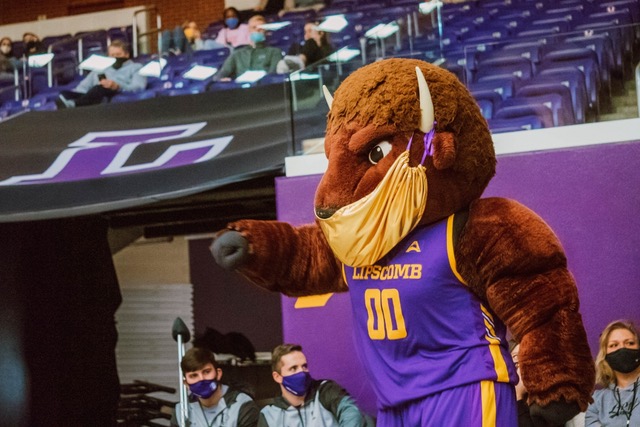A year ago, crowded nights in Allen Arena and smiling faces in Bennett Student Center used to be the norm. However, in the time since, the Lipscomb community has become all too familiar with masks, social-distancing and virtual learning. The changes from the past year are causing students and faculty to evaluate: What exactly awaits us in the future?
Just one year ago, on Thursday, March 12, 2020, the university sent out an email to students officially extending spring break another week.
Lumination covered this day as a part of a live update series. COVID was developing across the nation, across Nashville even, and no one expected the extended break would turn the campus into a ghost town for months to come.
The next weeks saw canceled Singarama, Mission Trips and live music events. Slowly the culture shifted, creating a new bubble of Tiger King and Zoom calls.
These changes left the Lipscomb administration reeling for solutions, even as information about the virus was confusing and scarce.
“There was a huge cross-section of representatives from different disciplines in the university,” said Kim Chaudoin, Lipscomb’s vice president for public relations and a member of the “IMT” (the Lipscomb taskforce for incident management).
“We were meeting to just decide, ‘OK; what do we do?’ about classes, employees and the management of this pandemic,” she said, as news began piling up about the COVID threat.
That’s when Lipscomb started making the tough calls on classes, residence life and graduation. As the White House recommended limiting gatherings to less than 10, Lipscomb’s President Randolph Lowry announced the cancellation of in-person classes for the rest of the semester.
At that time, Lowry wrote to students via email saying the following:
“We are Bisons. We are looking straight ahead as we navigate this unknown winter before us. We are tenacious as we take one day at a time in a world we cannot predict. And we are courageous in our journey as we know that spring always comes after even the bleakest of winters. No matter where you are during this winter, you are always part of the Bison Herd and together we will look forward to the spring that will come.”
That “spring” didn’t come as soon as anyone anticipated. The summer brought continued class cancellations, positive COVID tests for campus workers and the halt to athletic seasons.
In May, Lipscomb announced the intent to return to in-person learning for the fall semester. Lowry said in a video call to faculty “The challenge is really how do you figure out how to bring 1,500 people back and live in dorms, two to a room, use a common bathroom down the hall and take care of those that might get sick along the way.”
“Summer was pretty intense,” Chaudoin said. “Coming up with various protocols. … We all knew about wearing masks and social distancing, but what was it going to take to meet in person with our students?”
“There was just a lot of thinking and planning that went into everything. … It’s really amazing how so many people across campus came together with their ideas.”
Those ideas paid off, Lipscomb community members from all branches of campus adapted to a new world, and the fall semester came to life in August.
During this time, Lumination reported on COVID spikes, local restrictions and disappointing student life activities losses. A COVID case tracker continues to remain active, providing students and faculty with the data on-campus case trends.
http://luminationnetwork.com/covid-19-tracker/
Now comes the question, what’s next?
As the spring semester reaches its halfway point, vaccinations are becoming more accessible for vulnerable groups, COVID variants continue to spread and restrictions are lifting up across the country (despite opposition from health experts).
The impact from COVID is vividly apparent, and many anticipate it’ll remain that way for a while. In February, Lowry announced his stepping down from the presidency into the role of chancellor. And even this move was COVID-related.
He said this to Lumination:
“Coming out of COVID, we’re going to have to do some really important institutional planning…whoever does that needs to be here to lead that. And I’m not going to be here to do that for another decade.”
Chaudoin spoke about the positive trend towards the country’s “return to normalcy.”
“I really do think that the world is moving in a direction where things might be becoming a little bit more normal…whatever the new normal is,” she said.
“We know a lot more than we did this time last year. Moving into August, the state of the pandemic will be tremendously different. … Combining those two things, fingers crossed, things will look a little more traditional.”
Photo by Mckenzi Harris
This article includes COVID reporting from Mckenzi Harris, Erika Plunkett, Camryn Given, Tia Calvin, Ashley Bingham, Taylor McKnight, Anastasia Davis and Gunnar Eng.

